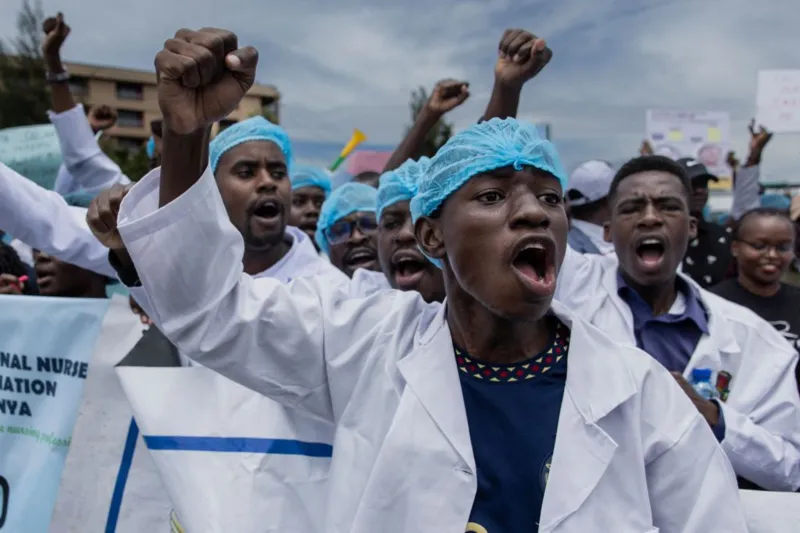Korede Abdullah in Lagos
Final Countdown Begins
There are strong signals that Nigeria’s fragile healthcare system could be plunged into deeper crisis as members of the Nigerian Association of Resident Doctors (NARD) weigh the option of an indefinite strike.
The association’s congress is set to hold today, July 1, 2025, to decide on a final course of action after their four-week ultimatum to the Federal Government expired without concrete results.
“The OGM gives the National Officers’ Committee the next four weeks to continue engagement with all the relevant stakeholders… after which the NEC will reappraise the situation,” the association stated in a communiqué issued on May 31.
Unmet Demands Fuel Frustration
At the heart of the doctors’ grievances are issues they say the government has consistently failed to address.
These include the full payment of the 2025 Medical Residency Training Fund, introduction of a specialist allowance, settlement of seven months of arrears under the 25–35 per cent Consolidated Medical Salary Structure, and adjustments to match the national minimum wage.
“First on the list in our demands is the Medical Residency Training Fund for 2025 which is the light of the day,” NARD President, Dr Tope Osundara, told our correspondent. He lamented that despite repeated engagements, these demands remain largely ignored.
A Sector on the Brink
Should the doctors down tools, the impact on Nigeria’s already overstretched health sector could be severe. Public hospitals, which rely heavily on resident doctors for critical services, risk being paralyzed, leaving millions without access to essential care.
Dr Osundara did not mince words: “There was a collective bargaining agreement in 2009… that each time they review the minimum wage in the country, it should reflect on the salary scale and for the last 16 years this has not been done.” The persistent neglect, he argued, is not just unfair but fuels the ongoing exodus of healthcare professionals abroad.
Brain Drain and Broken Promises
Analysts warn that another nationwide strike could further erode public trust and worsen Nigeria’s brain drain crisis.
“The government’s attitude towards healthcare workers’ welfare is pushing our best minds away,” Dr Osundara said, stressing that doctors are merely demanding fair and standard conditions.
For a nation already grappling with inadequate facilities and a severe doctor-to-patient gap, an industrial action at this time would expose the deep structural rot and the urgent need for genuine reforms in the healthcare sector.


